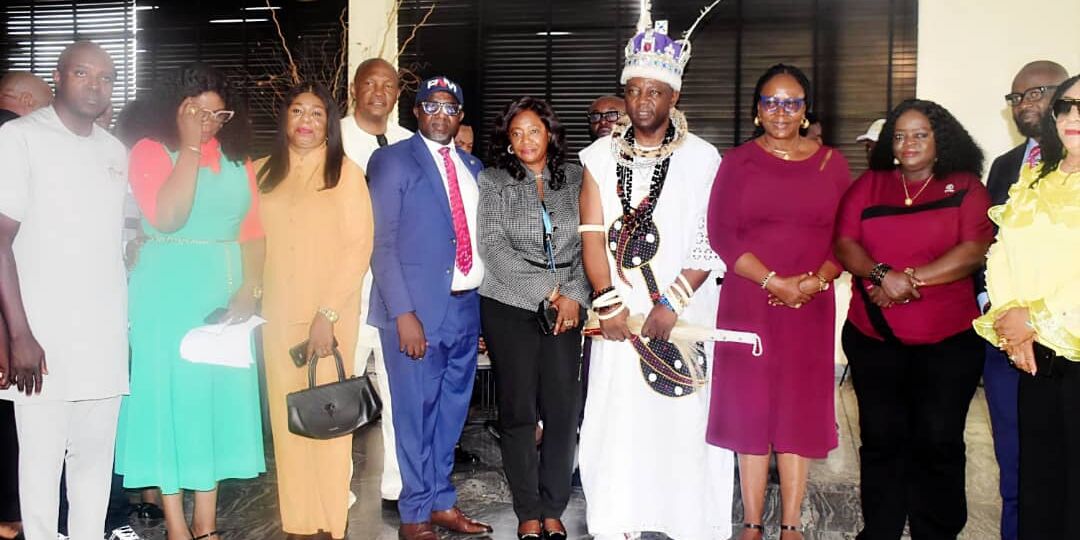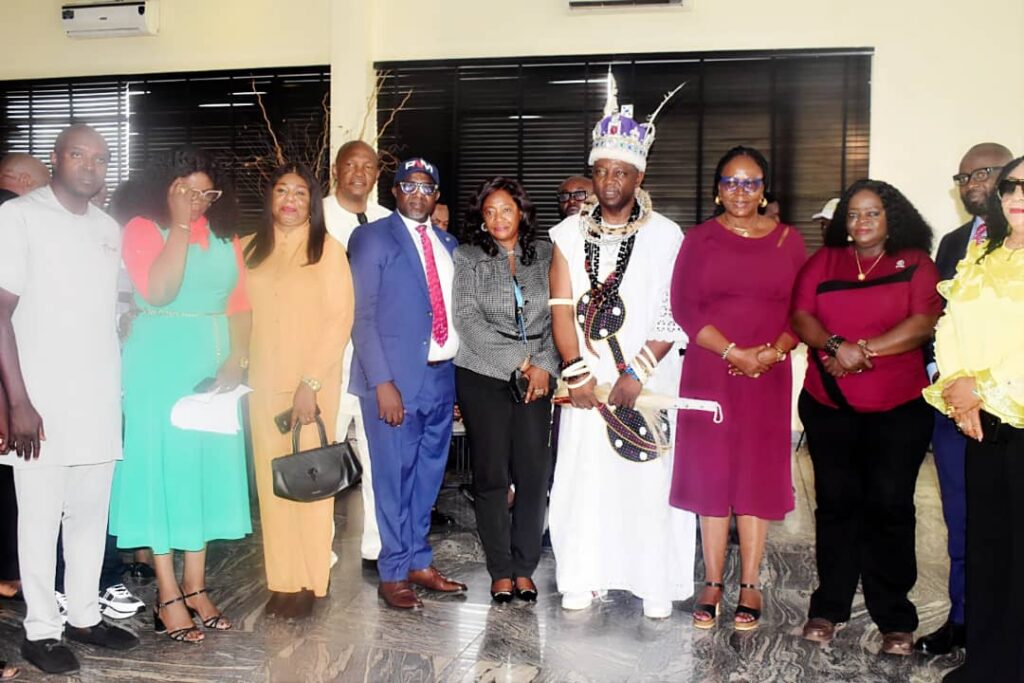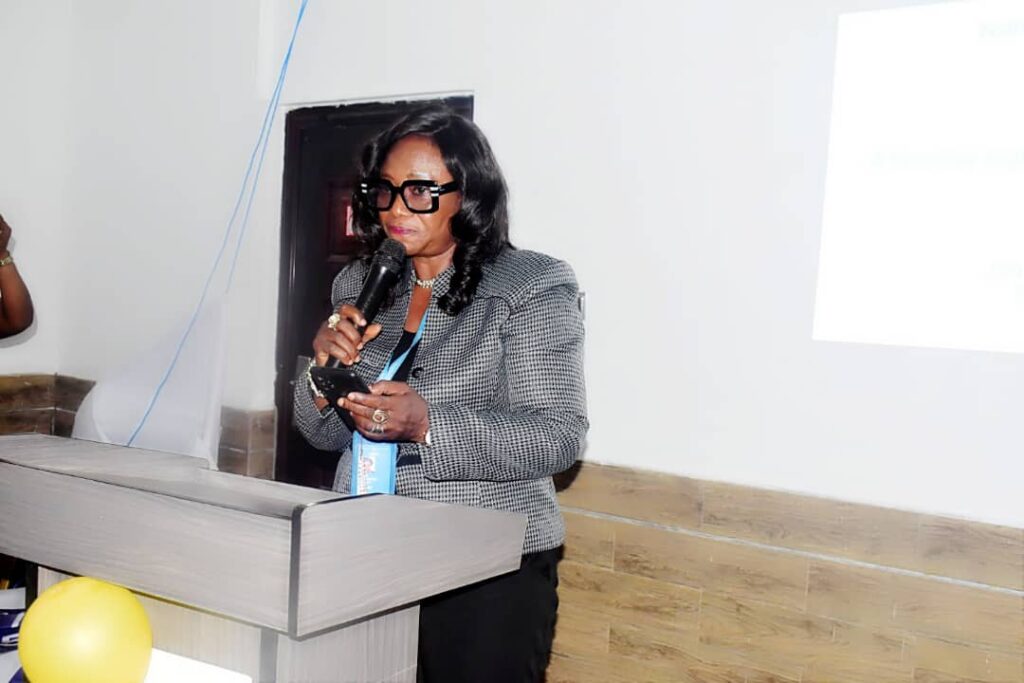
The Enugu State Ministry of Budget and Economic Planning, in collaboration with the State Committee on Food and Nutrition (SCFN) and UNICEF, held a One-Day Policy Engagement Meeting on Monday, 18th August 2025 with State Stakeholders and Local Government Executives. The meeting focused on the implementation of the N-774 Initiative and on harnessing the developmental potentials of Enugu children and adolescents through investment in maternal, infant, young child, and adolescent nutrition.
The programme was well attended by dignitaries, including representatives from all 17 Local Government Areas of Enugu State, Commissioners and Permanent Secretaries from various MDAs, the representative of the Head of Service, traditional rulers, UNICEF officials, and other stakeholders in nutrition and development.
 The welcome address was delivered on behalf of the Honourable Commissioner for Budget and Economic Planning, Barr. Chris-Roberts Ozongwu, by the Permanent Secretary, who also chairs the Enugu State Committee on Food and Nutrition. In his remarks, he commended His Excellency, Dr. Peter Ndubuisi Mbah, for the visionary Smart Green Farm Project, through which children in Smart Green Schools are being fed and provided with at least one egg daily. This initiative, he noted, is significantly improving the nutrition and health of children while also supporting local farmers and boosting food production. He also appreciated LGAs that have already taken steps to establish their Local Government Committees on Food and Nutrition (LGCFN), stressing that the meeting was aimed at strengthening the foundation for the successful implementation of the N-774 Initiative in the State.
The welcome address was delivered on behalf of the Honourable Commissioner for Budget and Economic Planning, Barr. Chris-Roberts Ozongwu, by the Permanent Secretary, who also chairs the Enugu State Committee on Food and Nutrition. In his remarks, he commended His Excellency, Dr. Peter Ndubuisi Mbah, for the visionary Smart Green Farm Project, through which children in Smart Green Schools are being fed and provided with at least one egg daily. This initiative, he noted, is significantly improving the nutrition and health of children while also supporting local farmers and boosting food production. He also appreciated LGAs that have already taken steps to establish their Local Government Committees on Food and Nutrition (LGCFN), stressing that the meeting was aimed at strengthening the foundation for the successful implementation of the N-774 Initiative in the State.
 The opening remarks were delivered by Mrs. Juliet Chiluwe, Chief of UNICEF Field Office Enugu, ably represented by Mrs. Ngozi Onuora, UNICEF Nutrition Specialist. She highlighted the meeting theme: “Harnessing Optimal Developmental Potentials of Enugu Children and Adolescents through Investment in Maternal, Infant, Young Child and Adolescent Nutrition – A Key to Sustainable Development in Enugu State.”
The opening remarks were delivered by Mrs. Juliet Chiluwe, Chief of UNICEF Field Office Enugu, ably represented by Mrs. Ngozi Onuora, UNICEF Nutrition Specialist. She highlighted the meeting theme: “Harnessing Optimal Developmental Potentials of Enugu Children and Adolescents through Investment in Maternal, Infant, Young Child and Adolescent Nutrition – A Key to Sustainable Development in Enugu State.”
 She commended the Government of Enugu State for its unwavering commitment to advancing the health and well-being of its citizens, particularly through the Child Nutrition Fund (CNF) Matching Contribution and the finalization of the Multi-Sectoral Strategic Plan of Action for Nutrition. She noted that 15% of children under five in Enugu are stunted, with many suffering from poor infant and young child feeding practices. UNICEF pledged continued partnership to ensure these challenges are addressed. She stressed that nutrition is a fundamental human right, declaring that “the right to food is not an empty slogan. When we help one child, we help a nation — because a hungry child is an angry child.”
She commended the Government of Enugu State for its unwavering commitment to advancing the health and well-being of its citizens, particularly through the Child Nutrition Fund (CNF) Matching Contribution and the finalization of the Multi-Sectoral Strategic Plan of Action for Nutrition. She noted that 15% of children under five in Enugu are stunted, with many suffering from poor infant and young child feeding practices. UNICEF pledged continued partnership to ensure these challenges are addressed. She stressed that nutrition is a fundamental human right, declaring that “the right to food is not an empty slogan. When we help one child, we help a nation — because a hungry child is an angry child.”
The Chairman, Enugu State Council of Traditional Rulers, HRH Igwe Ikechukwu Asadu, expressed appreciation to UNICEF for its sustained support to food and nutrition despite global challenges. He praised Governor Mbah for the Smart Green Farm Project and emphasized that traditional rulers, as custodians at the grassroots, must be carried along in nutrition interventions to ensure success across communities.
Representatives of the Nigeria Governors’ Forum explained that the N-774 Initiative, endorsed by the Federal Government, seeks to enhance nutrition programming across Nigeria’s 774 LGAs, including the 17 LGAs of Enugu State. The initiative is anchored on five strategic pillars: stepping down nutrition interventions to the grassroots, focusing on maternal and child nutrition, fostering health and economic outcomes, contributing to SDG 2 (Zero Hunger), and advancing SDG 3 (Good Health and Well-being). They emphasized that a hungry man cannot learn and that malnutrition undermines national productivity and GDP. The expected outcomes of the initiative include strengthened social protection, improved maternal and child health care, better water, sanitation, and hygiene (WASH), and enhanced food security.
 The State Nutrition Officer, Mrs. Loveth Onwuzulike, presented on the nutrition situation in Enugu State. She highlighted high rates of stunting and anemia among under-five children, poor dietary diversity with only 37% of children receiving the minimum acceptable diet, and low rates of exclusive breastfeeding at just 36%. She also identified key challenges, including inadequate funding, insufficient development partners, and lack of dedicated nutrition departments in relevant MDAs. She recommended that nutrition be prioritized as a cross-sectoral investment, with strengthened support for community health workers and increased budgetary allocation to nutrition programmes.
The State Nutrition Officer, Mrs. Loveth Onwuzulike, presented on the nutrition situation in Enugu State. She highlighted high rates of stunting and anemia among under-five children, poor dietary diversity with only 37% of children receiving the minimum acceptable diet, and low rates of exclusive breastfeeding at just 36%. She also identified key challenges, including inadequate funding, insufficient development partners, and lack of dedicated nutrition departments in relevant MDAs. She recommended that nutrition be prioritized as a cross-sectoral investment, with strengthened support for community health workers and increased budgetary allocation to nutrition programmes.
The Policy Engagement Meeting provided an avenue for stakeholders at State and LGA levels to deliberate on strengthening nutrition governance, scaling up interventions, and ensuring the successful implementation of the N-774 Initiative in Enugu State. Stakeholders reaffirmed their commitment to work collectively in addressing malnutrition, strengthening local structures, and investing in the health and future of children in the State.
The meeting concluded with Local Government and State Stakeholders signing their signatures as a demonstration of their commitment to the successful implementation of the N-774 initiative in Enugu State.
